Obstetrics in Ewes (LAMBING... Mod. 5)
1/12
There's no tags or description
Looks like no tags are added yet.
Name | Mastery | Learn | Test | Matching | Spaced |
|---|
No study sessions yet.
13 Terms
What are 5 things one should do pre-lambing season to ensure successful lambing?
1) Pregnancy scan your ewes to manage them in groups
2) Minimize handling of ewes in late pregnancy
3) Keep ewes healthy (vaccine boosters)
4) Check ewes are in appropriate conditions (body condition) for birth
5) Prepare the lambing area
Have plenty of pens
Divide them up into recovery and infectious areas
What are 6 ZOONOTIC diseases that one can be exposed to during lambing?
1) EAE (enzootic abortion of ewes)
2) Toxoplasmosis
3) Campylobacter
4) Salmonella
5) Orf
6) Q-fever
What are the 5 main signs that a ewe is approaching parturition?
1) Udder development - variable
2) Interest in other lambs
3) Contractions start; may not come forward during feeding / separates from flock
4) Restless as contractions increase
5) Nest making / scraping
What are the actual signs of lambing?
Appearance of water bag
Wet at back end
Part of lamb showing (should take 5 - 30 minutes)
When do we interfere to help a ewe lamb? In other words, what are the signs of dystokia? (problems at birth)
1) Total parturition period exceeding 90 minutes (straining for an hour)
2) Head of lamb only showing (suffocates lamb)
3) Wet or bloody back end but no obvious signs of a lamb
4) Only one leg, both legs, or tail showing and no progress
5) Water bag burst or delivered with no obvious lambing progress
6) Restless for long period of time with no or only intermittent straining
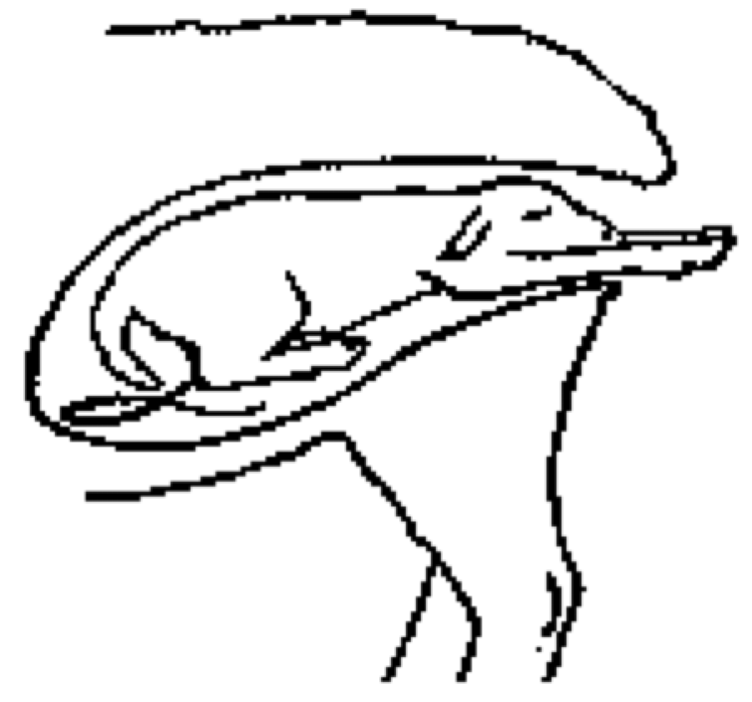
In this case, how would you assist?
“Diving position”: optimal presentation
No assistance needed typically
If you need to assist, pull forward then down (like a dive)
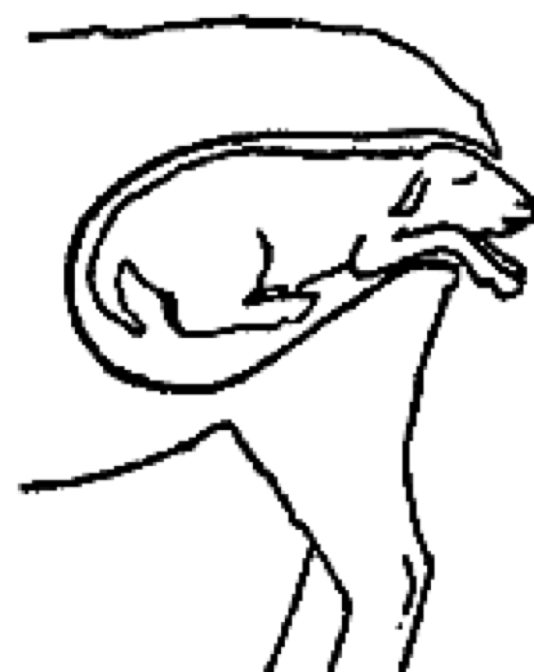
In this case, how do you assist?
Elbows stuck
On a small lamb, may be able to pull out normally
If tight fit, push lamb back inside GENTLY to straighten out the front legs, then assist
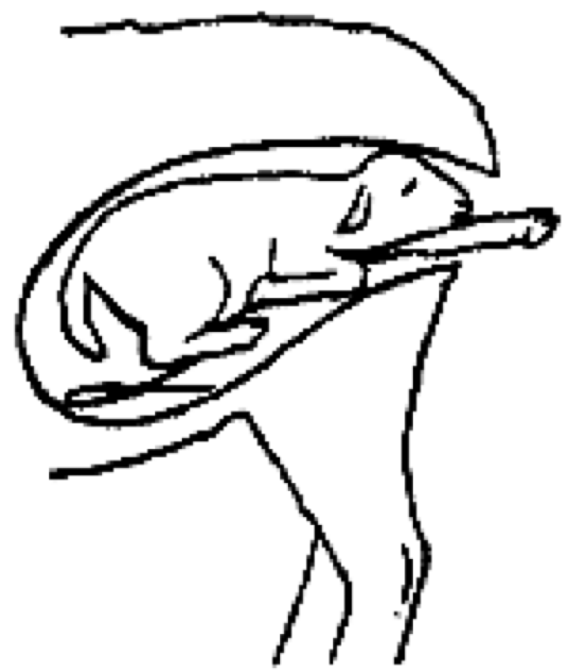
In this case, how do you assist?
Again, if a small lamb, can pull out with just the one leg
If lamb stuck:
Push lamb back in gently and straighten out bent front leg
CAREFUL… DON’T SCRAPE HOOF AGAINST UTERINE WALL
Cover hoof with hand before moving
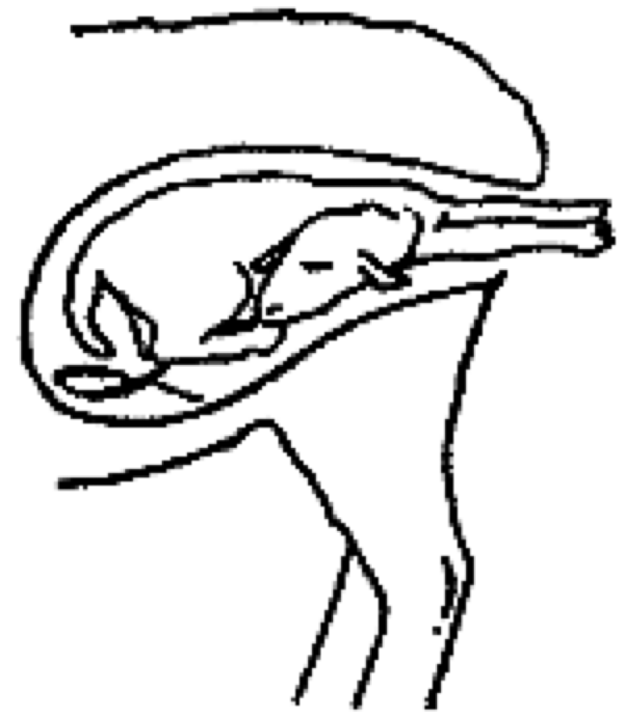
In this case, how do you assist?
Push legs back in gently, and find the head
DO NOT MANIPULATE HEAD WITH BOTTOM JAW; will break
Find the ears to determine how the head is oriented, then straighten it
Use rope restraint to KEEP head straightened out
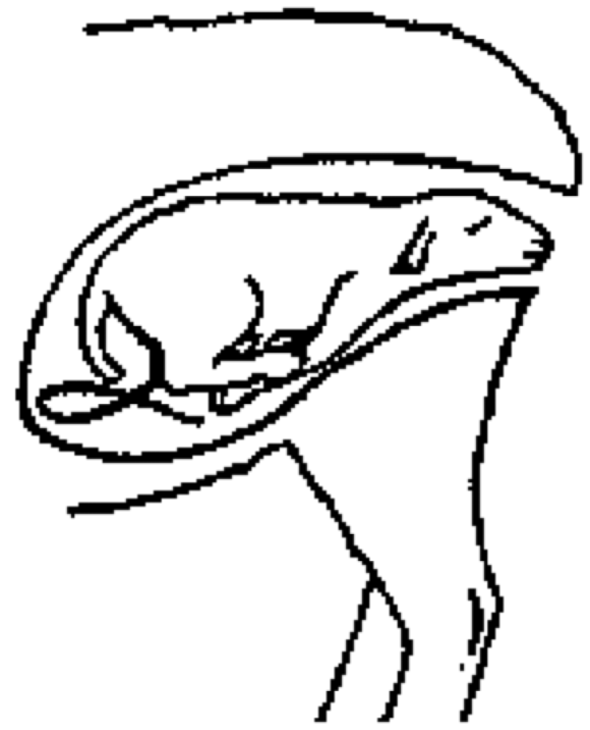
In this case, how do you assist?
“Hung head” position
Ease head back in… will possibly be swollen
Lubricate WELL and push back in
Keep pressure on; mother’s pushing will resist, but as contraction relaxes, should slide back in relatively easy)
After pushing back in, find front legs and bring them forward with rope restraints
REMEMBER TO CUP HOOVES IN HANDS
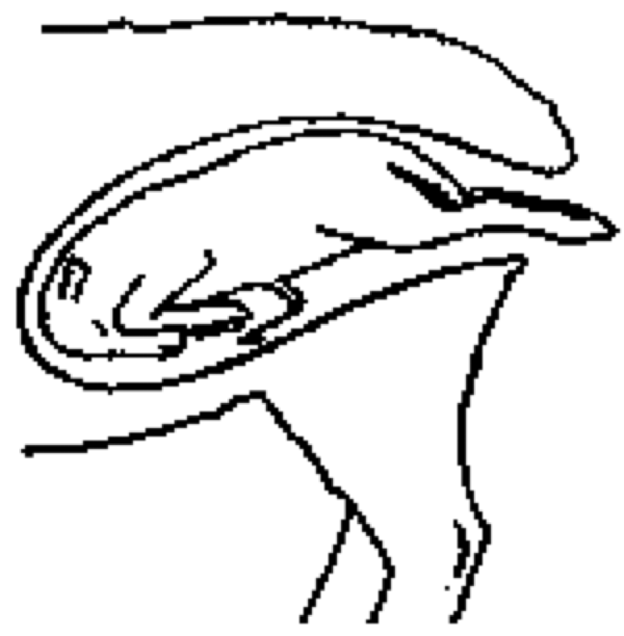
In this case, how do you assist?
Just simple assist
Hips may get stuck in birth canal… twisting motion helps them through
DON’T DO DIVING MOTION… sternum may get caught
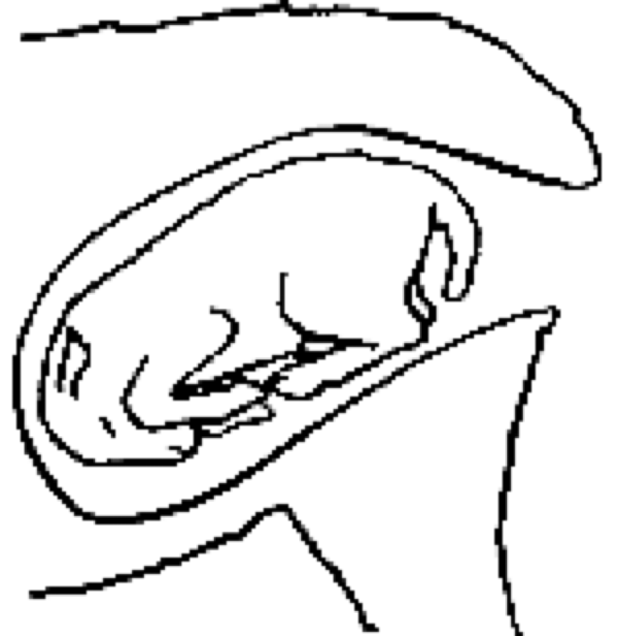
In this case, how do you assist?
TRUE BREACH
Birth backwards, but try and straighten back legs and pull them out (COVER HOOVES)
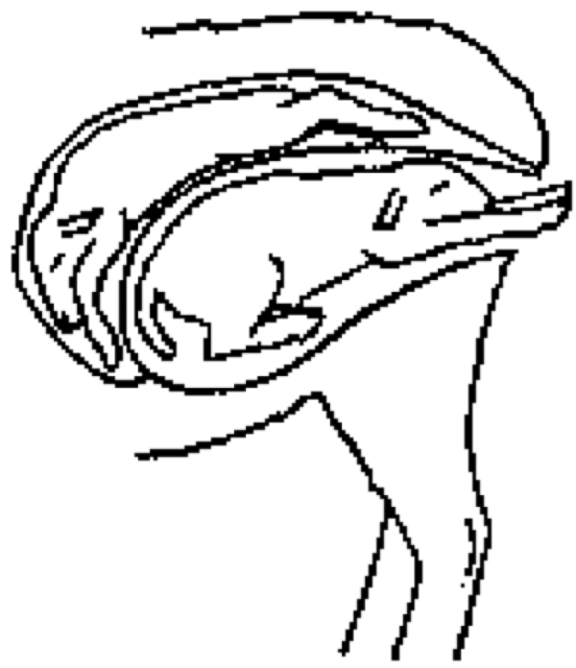
In this case, how do you assist?
Make sure to identify which parts belong to what lamb, and pull them out one at a time